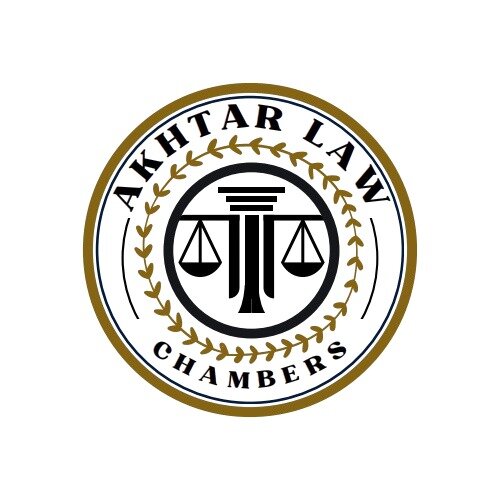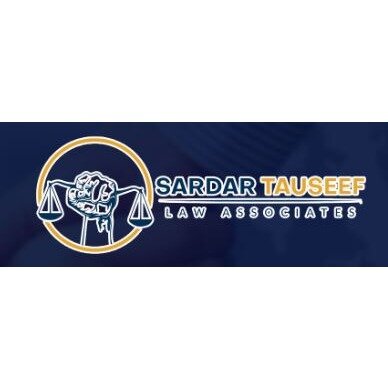Best ADR Mediation & Arbitration Lawyers in Pakistan
Share your needs with us, get contacted by law firms.
Free. Takes 2 min.
Or refine your search by selecting a city:
List of the best lawyers in Pakistan
About ADR Mediation & Arbitration Law in Pakistan
Alternative Dispute Resolution (ADR) in Pakistan encompasses various methods like mediation and arbitration to resolve disputes outside the conventional judicial system. ADR is increasingly recognized for its efficiency, cost-effectiveness, and faster resolution compared to traditional court proceedings. In Pakistan, ADR is governed by several legal frameworks, including the Arbitration Act of 1940 and various local bar associations' guidelines. The need for ADR has grown, particularly in commercial, civil, and family law cases, offering parties more control over the resolution process.
Why You May Need a Lawyer
Engaging a lawyer with expertise in ADR mediation and arbitration can be crucial in several situations:
- Commercial Disputes: When businesses encounter contractual disagreements or issues requiring a quick resolution to avoid prolonged litigation.
- Family Disputes: In matters such as divorce settlements or custody agreements where mediation may lead to amicable solutions.
- Labor Disputes: To address conflicts between employees and employers through arbitration councils constituted under labor laws.
- Complex Civil Cases: When parties seek a binding resolution through arbitration, particularly in property disputes.
- International Disputes: Companies operating across borders may need arbitration to resolve conflicts under international commercial arbitration rules.
Local Laws Overview
ADR mechanisms in Pakistan are underpinned by several key laws and guidelines:
- Arbitration Act, 1940: The primary law governing arbitration, establishing procedures for arbitration agreements, arbitral tribunals, and the enforcement of awards.
- Small Claims and Minor Offences Courts Ordinance, 2002: Provides for the use of ADR in small claims and minor offences to ensure swift justice.
- Family Courts Act, 1964: Encourages non-adversarial dispute resolution methods such as mediation to resolve family matters.
- Industrial Relations Act, 2013: Facilitates arbitration and mediation in labor disputes for effective resolution.
Frequently Asked Questions
What is ADR?
Alternative Dispute Resolution (ADR) refers to methods of resolving disputes outside of traditional court proceedings, primarily through mediation and arbitration.
How does arbitration differ from mediation?
In arbitration, an arbitrator makes a binding decision after hearing both parties. Mediation involves a mediator assisting parties to reach a mutually agreeable solution, but the outcome is not binding unless recorded in an agreement.
Is an arbitration award enforceable in Pakistan?
Yes, arbitration awards are enforceable under the Arbitration Act, 1940, and have the same standing as a court decree.
Can I choose arbitration for any type of dispute?
While many disputes can be resolved through arbitration, certain cases, such as criminal matters, may not be suitable for ADR processes.
What are the benefits of ADR over litigation?
ADR typically offers faster, more cost-effective resolutions, maintains privacy, and allows parties more flexibility in proceedings.
Who can serve as an arbitrator or mediator?
Arbitrators and mediators are often experienced legal professionals, but they can also include experts in relevant fields, chosen by the parties involved.
Can court proceedings be initiated after ADR?
If mediation fails to result in a resolution, parties can pursue court actions. However, arbitration awards generally preclude further litigation due to their binding nature.
How can I initiate ADR proceedings?
ADR proceedings can be initiated by an agreement between parties to use ADR as outlined in a contract clause or through mutual consent at any dispute stage.
Are lawyers necessary in ADR proceedings?
While not mandatory, having legal representation can provide strategic advantages, particularly in complex disputes or when drafting agreements and awards.
What costs are associated with ADR in Pakistan?
Costs vary depending on the nature of the dispute, the professional fees of the arbitrator or mediator, and the duration of proceedings. Generally, ADR tends to be less costly than litigation.
Additional Resources
For further assistance, you may consider reaching out to the following resources and organizations:
- Arbitration Centers in major cities such as Karachi, Lahore, and Islamabad
- The Pakistan Bar Council for listings and referrals
- National Centre for Dispute Resolution (NCDR)
- Relevant chambers of commerce for commercial disputes
- Family Counselling Centers for family mediation support
Next Steps
If you require legal assistance in ADR mediation and arbitration, consider the following steps:
- Identify the nature of your dispute and the desired outcome from ADR processes.
- Research and choose an experienced lawyer specializing in ADR to guide you through the process.
- Consult with potential lawyers to discuss your case and understand the ADR procedures relevant to your situation.
- Ensure all agreements and preparations for mediation or arbitration are meticulously documented.
- Follow through with the appropriate ADR mechanism, guided by your chosen legal representative.
Taking these steps can help you navigate ADR processes effectively, providing a clear pathway to resolving disputes in Pakistan.
Lawzana helps you find the best lawyers and law firms in Pakistan through a curated and pre-screened list of qualified legal professionals. Our platform offers rankings and detailed profiles of attorneys and law firms, allowing you to compare based on practice areas, including ADR Mediation & Arbitration , experience, and client feedback.
Each profile includes a description of the firm's areas of practice, client reviews, team members and partners, year of establishment, spoken languages, office locations, contact information, social media presence, and any published articles or resources. Most firms on our platform speak English and are experienced in both local and international legal matters.
Get a quote from top-rated law firms in Pakistan — quickly, securely, and without unnecessary hassle.
Disclaimer:
The information provided on this page is for general informational purposes only and does not constitute legal advice. While we strive to ensure the accuracy and relevance of the content, legal information may change over time, and interpretations of the law can vary. You should always consult with a qualified legal professional for advice specific to your situation.
We disclaim all liability for actions taken or not taken based on the content of this page. If you believe any information is incorrect or outdated, please contact us, and we will review and update it where appropriate.
Browse adr mediation & arbitration law firms by city in Pakistan
Refine your search by selecting a city.

















